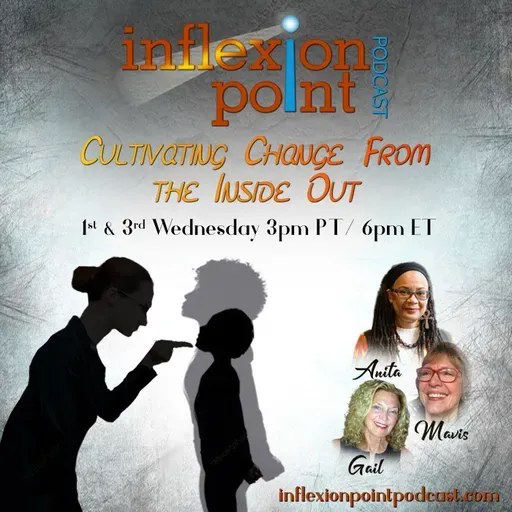
04 January 2023
The Need for Historical and Racial Literacy
InflexionPoint Podcast: Cultivating Change from the Inside Out
About
Anita, Mavis, and Gail discuss the the first year of InflexionPoint Podcast in terms of the most personally impactful and transformational episodes. They describe the show as influential in terms of historical and racial literacy. Racial Literacy: (1) a concept developed by sociologist France Winddance Twine, UC Santa Barbara Dept of Sociology. She describes it as "a form of racial socialization and antiracist training that ... parents of African-descent children practiced in their efforts to defend their children against racism" in her research done in the United Kingdom with mixed-race families. (2) a skill and practice by which individuals can probe the existence of racism and examine the effects of race and institutionalized systems on their experiences and representation in US society. Becoming racially literate requires that, as educators (and humans), we can: Engage with the emotional content of any conversation that has a focus on race Welcome personal narratives and the lived experiences of all who are involved in the race conversation Talk confidently about our own racial identities Feel confident in creating and engaging in healthy and reciprocal cross-racial relationships Challenge racism at the individual, group and systemic level Historical Literacy: The past informs the present to empower the future. The past and present, in many ways, influence our future. Paulo Freire, in his book Pedagogy of the Oppressed, says: Looking at the past must only be a means of understanding more clearly what and who you are. So, you can build the future more wisely." What Good is History? History matters because history is the fragile tether that not only connects us to what and who came before us, it is by way of history that then has become now. Asking questions of history brings perspective, knowledge, maybe even lessons.